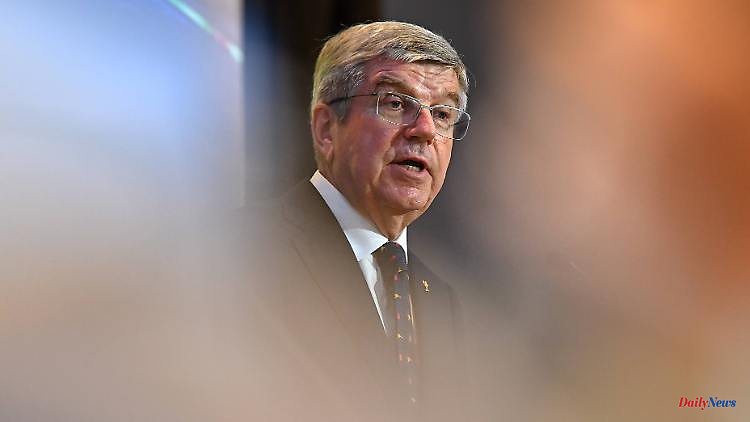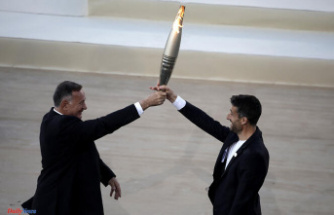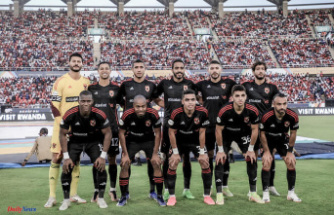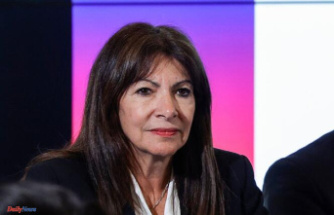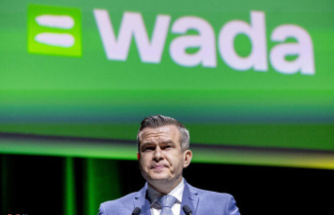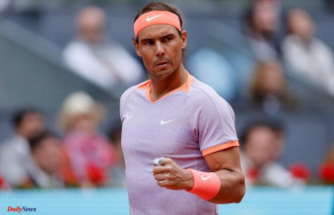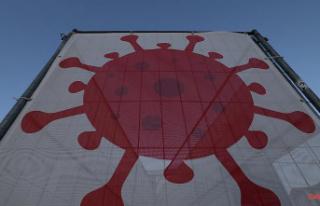Russian athletes are not allowed in most international competitions. A consequence of the Russian war of aggression. IOC boss Thomas Bach, whose association imposed the ban, now warns not to let politics take over the sport as a sport.
For years, IOC boss Thomas Bach has been considered a good friend of Russian President Vladimir Putin. When he decides to launch a devastating war of aggression against neighboring Ukraine, the powerful sports official has difficulty distancing himself from the Kremlin chief. The International Olympic Committee (IOC) responded to Putin's aggression and banned Russian and Belarusian athletes from participating in international competitions.
Many associations joined the ban. But not all. In tennis, for example, Russian players are allowed to compete in most tournaments, most recently at the French Open. On the other hand, they are excluded from the upcoming Grand Slam in Wimbledon. Which inspires Bach, who despite his struggling distance from Putin, remains pro-Russia, to deliver an irritating speech to the Association of Summer Olympic International Federations, a non-profit federation of international sports federations that compete in the Summer Olympics.
As reported by the "Insidethegames" portal, Bach said that the association had to find its own way of dealing with the war in Ukraine or otherwise ran the risk of "becoming a political instrument". The IOC boss is known for wanting to separate sport and politics. But according to his own interpretation. He was celebrated for the joint Korean ice hockey team (North and South) at the Olympic Games in Pyeongchang. In Beijing, on the other hand, he remained staunchly silent on the issues of the impending war in Ukraine and human rights violations in China. And since he likes to make the Olympic stage available to politicians to cultivate their image, this separation is at best theoretical anyway.
Using the example of tennis, the German official warned that governments influence decisions on the participation of athletes from Russia and Belarus. "We need governments to respect our role," Bach said at the ASOIF General Assembly in Lausanne. "Look at our tennis friends, in Paris Russian players can play as neutral athletes, in London, at Wimbledon, the government says no, and if we allow that, if we give in, then we're lost," Bach warned .
He asked how fair competition in sport could be guaranteed if politicians acted according to their own interests and decided who could and couldn't take part in sporting events. "Today it's Russia and Belarus, tomorrow it's a different country. There is no country in the world that is loved by every government." Well, what Bach leaves out of his speech. It's not about love, it's about an aggressive war of aggression. The IOC boss said: "This is against all our principles. If we leave the decision to the governments, then we become a political instrument and cannot guarantee fair competition."
According to "Insidethegames", Bach emphasized that the IOC imposed the ban because Russia "violated the Olympic ceasefire agreed by the United Nations in Beijing." The tough measures were imposed "to make it clear that the Olympic ceasefire is only aimed at governments." Anyone who supports the war can and should be sanctioned, he said, "but anyone who does not support the war, their rights must be respected, according to our own rules and the rules of international law. There are no sanctions and there should be give no penalty for possession of a passport."
Bach said the ban was also imposed to protect athletes from affected countries. The IOC felt that safety at international competitions could no longer be guaranteed and that the athletes had been subjected to aggressive actions. Bach fears that the political world will be "more divided" after the war. He warned that sport should build important bridges in this world. "The sport can be practiced without political interest and without any form of discrimination." However, he fails to recognize that (Olympic) sport has always been political.

